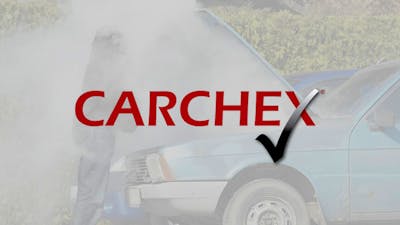What You Need To Know About the Denso Fuel Pump Recall
If you own a 2013-2020 model year Toyota, Honda, Ford, Subaru, or Mitsubishi, your vehicle may be subject to an important and expansive recall. The defective part is the fuel pump, and it can cause the vehicle to stop or stall. It also may not start again. Owners of vehicles with the defective pump have reported this happening. It’s not a theoretical or possible failure, but one that is currently happening to owners like you.
What is the Denso fuel pump recall all about?
The low-pressure fuel pumps that are failing were manufactured by Denso, an automotive component manufacturing company with ties to Toyota. The recall was approaching 4 million vehicles at last count, so it’s a doozy.
Car Talk is reporting the news of this recall, despite the first reports being from 2020. The reason we are bringing it to the attention of our readers now is that this recall had an unusual rollout. We feel that both owners of cars with the defect and also those who purchased a used car that may be subject to the recall should know about this one.
Popular Warranty Providers
What makes this recall unusual?
The first company to report the defect was Denso, who contacted the National Highway Traffic Safety Administration. Denso’s engineers found that the impeller of the fuel pump had been improperly exposed to drying solvents when it was made. The impeller is like a propeller, but it is inside a pump, rather than outside like a propeller on a boat. The impeller sits inside the pump housing, and there are tight tolerances that help the pump build the needed pressure. The affected impellers were swelling and possibly also distorting. This caused the impellers to contact the housing and become damaged. The result is a pump that doesn’t function and a car that is starved of fuel.
On owner issues with Denso fuel pumps
Car Talk has been tracking this topic since it began. Early on, Toyota owners reported bad experiences when they brought the car in for a recall and repair. These instances seemed to have settled down. Also, some owners reported delays in getting the needed parts.
Some owners of the affected vehicles did indeed break down. Others felt and reported poor performance to dealers, which attributed the problem to the defective fuel pumps. Others noticed a change in the car’s performance, did not report it, but found that the fuel pump recall repair helped solve the poor performance.
Symptoms and first steps
If your car stalls when operating and falls within the model years and list of makes above, be sure to check to see if your car is one of those recalled. You can do that by calling your dealer, by using your brand’s recall lookup page, or by using NHTSA’s here.
If your vehicle is one of the makes and from the model years above and seems to run poorly and is for some reason not on the recall list, we suggest that you visit your dealer to report the issue. If the dealer fixes the car, and if a fuel pump is the cause, but the cost is not covered by the manufacturer under a recall or goodwill policy, be certain to keep your paperwork. In situations like this, when recalls are expanded to include more vehicles, a manufacturer will reimburse an owner if the problem was previously repaired at their expense and if they have proof of payment.
Planning for a recall visit - How long does it take to replace a fuel pump?
Replacing a fuel pump can take more than a couple of hours, and you may need to leave the vehicle all day or overnight, so waiting is not practical. Fuel pumps are often tricky to get to and may need to be accessed from inside the vehicle's cabin. If you have an appointment to have your recall work done, ask if the dealer wants you to do anything special before coming in. For example, keeping the tank below full. Also, ask if a loaner car is available for your service visit or if the dealership can give you a ride. Always verify that the part is in stock before finalizing your appointment.
What to check when picking up your repaired vehicle
After the dealer completes the work, you will not be required to pay. That is true of all recalls. When you arrive, be sure to get and keep the receipt for the work. Put this with your maintenance records. Inspect the vehicle inside and out using your eyes and nose. Smell gas? Ask the dealer to resolve that issue. A strong smell of fuel inside of a vehicle is not normal following any proper repair.
Denso fuel pump lawsuits
Multiple lawsuits and class action suits surrounding the topic of the Denso fuel pump debacle have been filed. If you are interested in heading down that rabbit hole, simply do a keyword search, including your make and model and the words Denso Fuel Pump Lawsuit. There is more than enough info there to kill an entire afternoon. However, why sue a company already offering a fix?
Will the Denso fuel pump recall really fix my vehicle’s problem?
Some recalls are a real hassle because the “fix” does not really resolve the issue. However, in the case of the Denso fuel pump recall, there is good news. The fuel pumps that are being installed to replace the possibly defective ones are working well. You should not have any adverse performance issues, and the fix should be a one-time event.
Read more on the topic of Owning a Car here.













